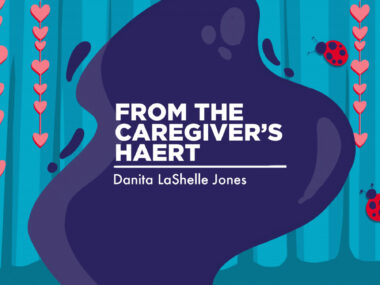More needs to be done to educate emergency workers on HAE: Study
Patients report bad experiences in emergency rooms in new UK survey
Written by |

New treatments for hereditary angioedema (HAE) have been life-changing for people in the U.K., but more and better efforts are needed to educate emergency workers on providing care, according to a new study.
The survey study found that HAE patients in Great Britain still frequently have upsetting experiences when they need to seek emergency care, with many healthcare workers not knowing how to treat their symptoms.
“Targeted education for emergency practitioners is needed to improve emergency treatment and reduce the psychological burden of delayed emergency care,” the researchers wrote.
The study, “Hereditary Angioedema patient experiences of medication use and emergency care,” was published in International Emergency Nursing. The work was funded by HAE UK, which provides online support to people in the country who have the genetic disorder.
New treatments have been ‘revolutionary,’ patient says
HAE is a rare disease characterized by attacks of swelling, which can be life-threatening if they occur in the throat and block the airways. When such attacks occur, emergency medical care is required.
While this type of angioedema historically has been difficult to manage, care has been revolutionized in recent decades with the availability of new treatments. These therapies can be used to prevent and control swelling — and several can be administered at home. Nonetheless, many patients seek care for HAE attacks in hospitals.
To gain more insight into the experiences of people with HAE with new treatments, as well as emergency medical care more generally, a team of U.K. scientists set out to ask patients themselves.
“While evidence indicates that these agents are effective in the management of HAE, little is known about patients’ own perceptions and experiences of self-administering medications or receiving treatment in emergency care settings,” the researchers wrote.
Working with HAE UK, the researchers conducted a survey of 65 people with the disorder. Following that, 11 of the patients also sat down for in-depth interviews about their experiences.
The researchers then highlighted the major themes that arose from the survey responses and interviews.
A major finding was that new treatments have been life-changing for many patients.
“It’s made a huge difference because it’s removed almost entirely the worry aspect of saying what happens if I get an attack of HAE? Because I can’t tell you how revolutionary these drugs have been,” said Owen, a 72-year-old man with HAE.
Sasha, a 28-year-old woman with HAE, said new treatments have “kind of made me realise that although I have got a condition, with that treatment it’s controllable. It doesn’t control me anymore.”
Although patients generally agreed that getting prompt treatment for swelling attacks is important, some reported that they had delayed seeking care in certain instances. Some individuals were unsure if their symptoms were HAE or something else, while others were afraid to inject themselves.
Another common reason for delaying treatment was guilt about the cost of HAE medications for the U.K.’s publicly funded National Health Service.
“You know that the treatment is very, very expensive so you potentially don’t want to be taking it unnecessarily if it is something else,” said Sophie, a 34-year-old patient.
Healthcare workers need better training to provide emergency care
Patients also reported that, when they had to seek emergency medical care, the experience was often traumatizing and upsetting. Many individuals reported feeling misunderstood and improperly cared for in emergency settings — even patients who carried an official letter explaining their condition to healthcare workers specifically for use in these situations.
“I’ve got this letter that says Mr [redacted]’s got HAE, this is how you do the injections, there’s literally a flowchart on there [that says] ‘do this’, and you’d think you could say, I don’t know, ‘I’m having a throat swell’ or something, ‘here’s the thing, do this’, and they’d get straight on it. But they don’t, they faff about for ages, phoning everybody and his dog up and trying to find out where they put the C1 esterase inhibitor, and you can be four or five hours before anything actually happens and that’s really frustrating,” said Alan, a 57-year-old patient.
You’d think you could say, … ‘I’m having a throat swell’ or something, ‘here’s the thing, do this’, and they’d get straight on it. But they don’t, they faff about for ages, phoning everybody and his dog up … and you can be four or five hours before anything actually happens and that’s really frustrating.
For patients who had life-threatening swelling attacks, the experience could be especially terrifying.
That was the case for a patient named Maria, whose most severe HAE episode, involving the lips and throat, occurred when she was 21.
“All I was thinking was ‘oh God don’t let me die, I don’t wanna die suffocating, being aware I’m suffocating,’” Maria, now 51, told interviewers.
“I remember them coming and saying ‘if it [the swelling] doesn’t start going down, we’re gonna have to sedate you and incubate [sic] you’, and all I wrote on this pad was ‘please don’t let me die’, that was my only thought in my head was ‘please don’t let me die,'” Maria said.
Collectively, the survey results show that new treatments have notably improved life for people with HAE, the researchers concluded. However, they note that there’s still work that needs to be done to educate emergency healthcare workers and facilitate the best possible care for patients.
“These findings provide important new insights into the experience of patients with HAE in the United Kingdom (UK) and highlight opportunities for improving the quality of patient care,” they wrote.







